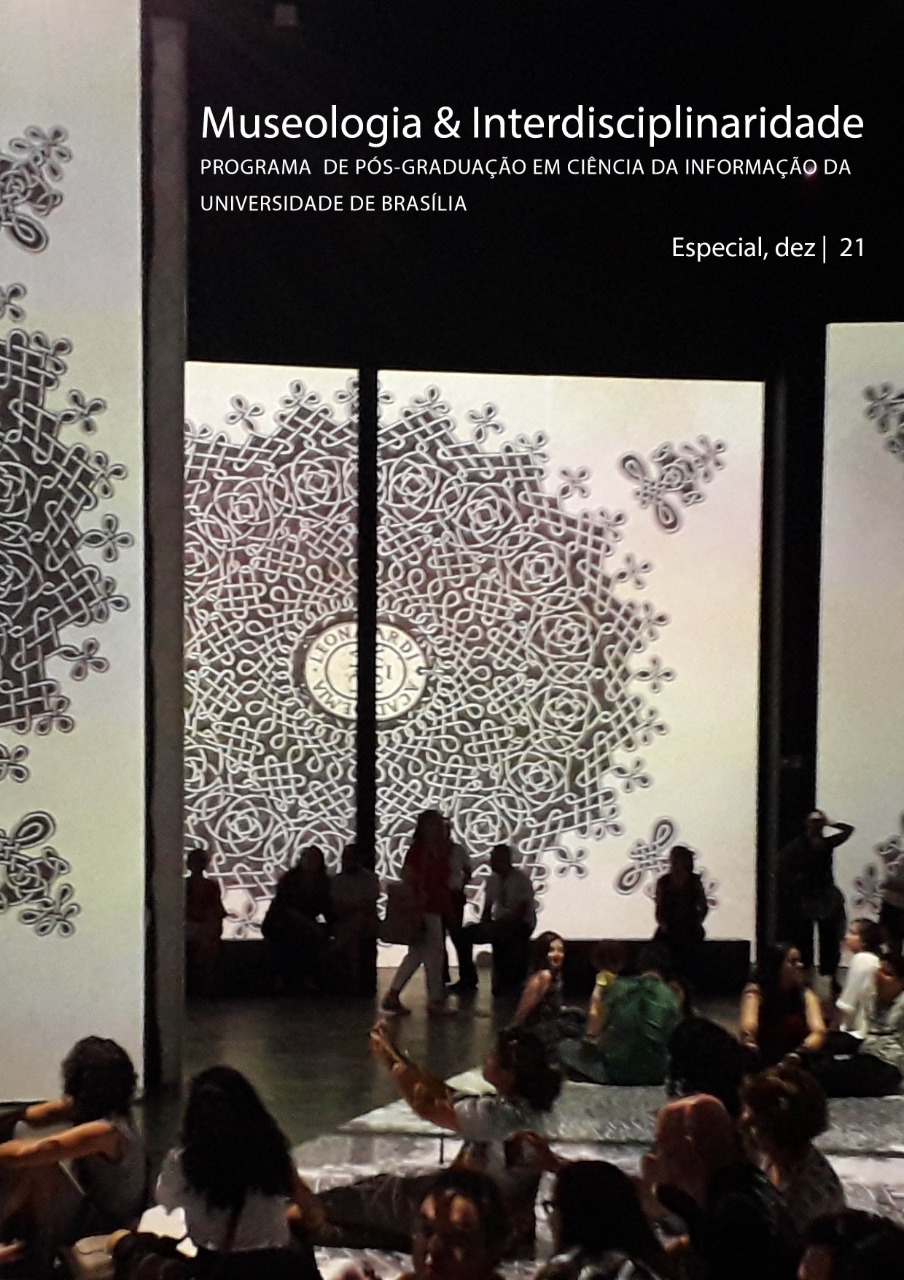Perspectivas da sociedade da informação
Perspectives of the information society: cultural approach and everyday scenarios
DOI:
https://doi.org/10.26512/museologia.v10iEspecial.35866Keywords:
Information society. Knowledge society. Network society. Knowledge-based economy. Cyberculture.Abstract
Presents information at the center of contemporary society, under six perspectives proposed by Frank Webster in 1995: economic, spatial, occupational, technological, cultural and knowledge. The text begins with the evolution of some locutions that emerged to describe the nature of the information age and reveals that the term information society included and encapsulated all previous partial locutions. The main objective of the research was to contextualize the cultural perspective of the information society concurrently with other approaches. The methodology adopted was bibliographic research, to explore and expand the literature review carried out by Webster with the purpose of creating the scenarios of the information society enhanced in various angles. The research concludes that the understanding of the information society in each perspective highlights aspects of everyday life that are undoubtedly dependent on information and knowledge, which have permanently changed the way of living.
Downloads
References
BARLOW, J. P. Declaration of the independence of cyberspace. Davos: Fórum Econômico Mundial, 1996
BELL, David. An introduction to cybercultures. Londres: Routledge, 2001.
BELL, Daniel. The corning of post-industrial society: a venture in social forecasting. Nova Iorque: Basic Books, 1973.
CASTELLS, M. The rise of the network society. 2a. ed. Oxford: Wiley-Blackwell, 2010. (Série The Information Age: Economy, Society and Culture, v. 1)
CRAVEN, P.; WELLMAN, B. The network city. Sociological Inquiry, v. 43, n. 3”“4, 1973.
DRUCKER, P. The age of discontinuity: guidelines to our changing times. Oxford: Butterworth-Heinemann, 1969.
DRUCKER, P. The effective executive: the definitive guide to getting the right things done. 50th anniversary edition. Nova Iorque: HarperCollins Publishers, 2017.
DURLAUF, S. N.; BLUME, L. E. (Ed.). The new Palgrave dictionary of economics. Londres: Palgrave Macmillan, 2008.
GALBRAITH, J. K. The affluent society. Boston: Houghton Mifflin, 1958.
GOULDNER, A. The future of intellectuals and the rise of the new class. Nova Iorque, v. 79, 1979.
HARRIS, P. Toward human emergence: a human resource philosophy for the future. Human Resource Development, 2009.
HAYEK, F. A. The use of knowledge in society. The American Economic Review, v. 35, n. 4, 1945.
HILTON, A. M. Cyberculture: the age of abundance and leisure. Ann Arbor: University of Michigan, 1964.
HILTZ, S. R.; TUROFF, M. The network nation: human communication via computer. Reading: Addison-Wesley, 1978.
INTERNATIONAL TELECOMMUNICATION UNION (ITU). World summit on the information society: declaration of principles. Genebra: Organização das Nações Unidas, 2003. (Document WSIS-03/GENEVA/DOC/4-E).
INTERNATIONAL TELECOMMUNICATION UNION (ITU). World Telecommunication Development Conference (WTDC-94). Buenos Aires. Vol. 1. Final Report. Genebra: ITU, 1994.
LEMOS, A. Cibercultura como território recombinante. Salvador: Instituto Goethe, 2006. (transcrição revisada da conferência ministrada no evento TERRITÓRIOS RECOMBINANTES, realizado no Instituto Goethe (ICBA), em Salvador, em agosto de 2006).
LÉVY, Pierre. Cibercultura. 2ª. ed. São Paulo: Ed. 34, 1999.
MACHLUP, Fritz. The production and distribution of knowledge in the United States. Princeton: Princeton University Press, 1962.
NEGROPONTE, N. Being digital. Londres: Hodder and Stoughton, 1995.
ORGANISATION FOR ECONOMIC CO-OPERATION AND DEVELOPMENT (OECD). The knowledge-based economy. Paris: OECD, 1996. (Document OCDE/GD(96)102)
OTLET, P. Monde, essai d'universalisme: connaissance du monde, sentiment du monde, action organisée et plan du monde. Bruxelas: Mundaneum, 1935.
PERKIN, H. The rise of professional society: England since 1880. London: Routledge, 1989.
PORAT, M. U. The information economy: definition and measurement. Washington: US Department of Commerce, Office of Telecommunications, 1976.
TAPSCOTT, D. The digital economy: promise and peril in the age of networked intelligence. Nova Iorque: McGraw-Hill, 1994.
TEIXEIRA, M.M. Cyberculture, from Plato to the virtual universe: the architecture of collective intelligence. Munique: Grin, 2012
TYLOR, E. B. Primitive culture: researches into the development of mythology, philosophy, religion, art and custom. Londres: J. Murray, 1871.
UNITED NATIONS EDUCATIONAL, SCIENTIFIC AND CULTURAL ORGANIZATION (UNESCO). UNITED NATIONS UNIVERSITY (UNU). Knowledge societies policy handbook. Paris: Unesco; UNU, 2016.
VAN DIJK, J. De netwerkmaatschappij: sociale aspecten van nieuwe media. Houten: Bohn Stafleu Van Loghum, 1991.
WEBSTER, F. Theories of the information society. Routledge, 1995
WIENER, N. The human use of human beings: cybernetics and society. 2a. ed. Nova Iorque: Doubleday Anchor Books, 1950.
Downloads
Published
How to Cite
Issue
Section
License
Copyright (c) 2021 Museologia & Interdisciplinaridade

This work is licensed under a Creative Commons Attribution-NonCommercial-NoDerivatives 4.0 International License.


